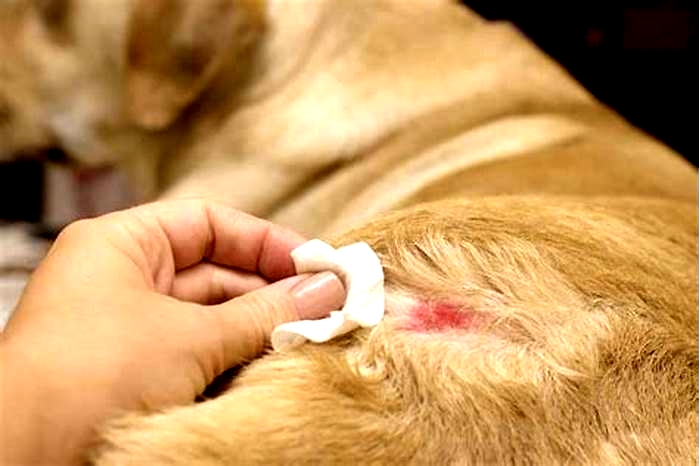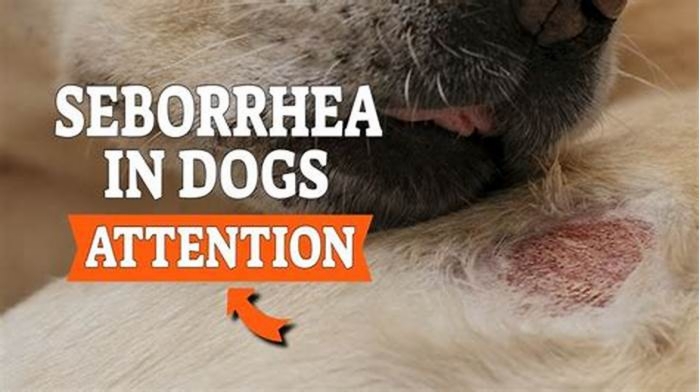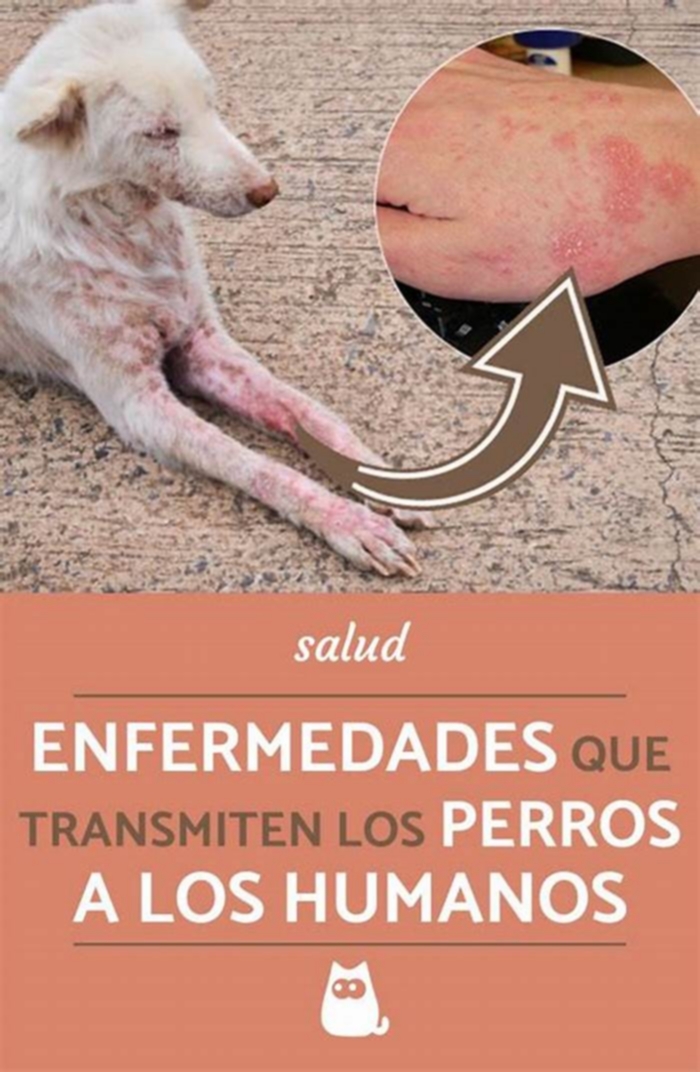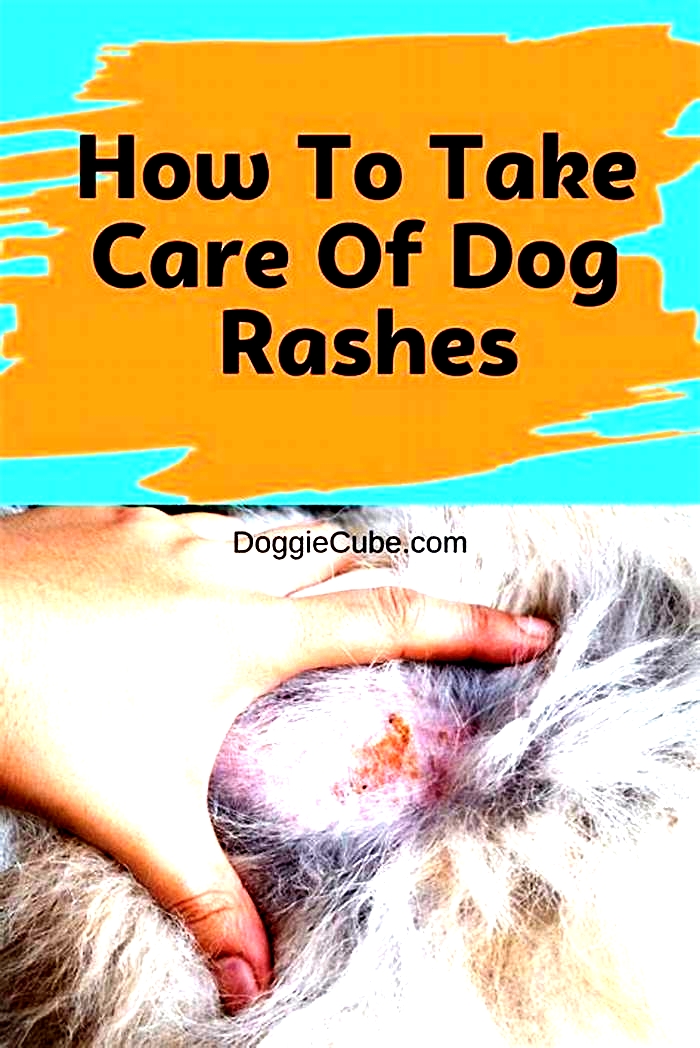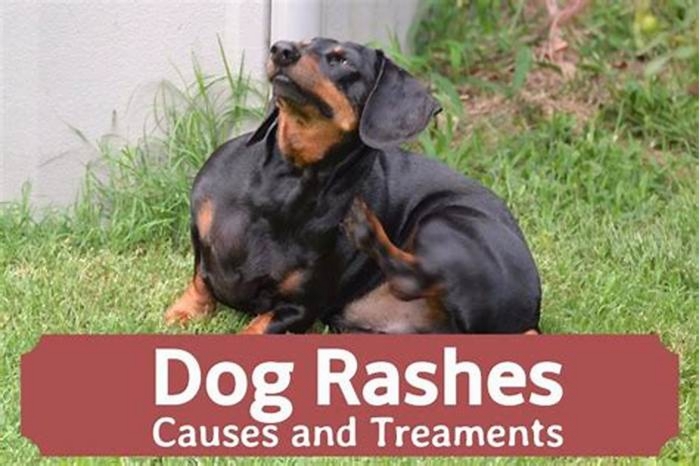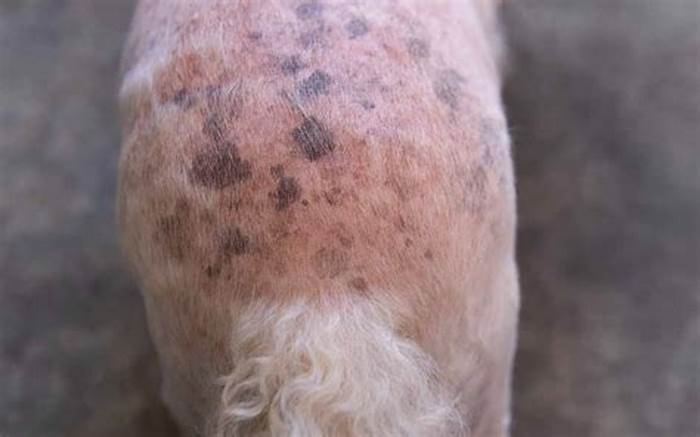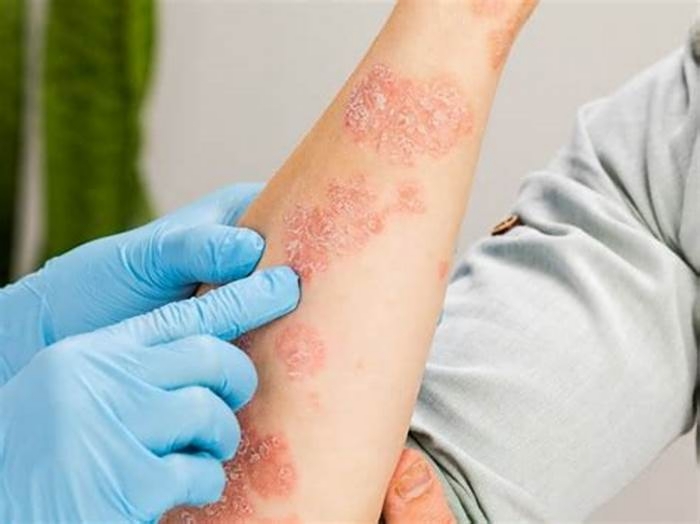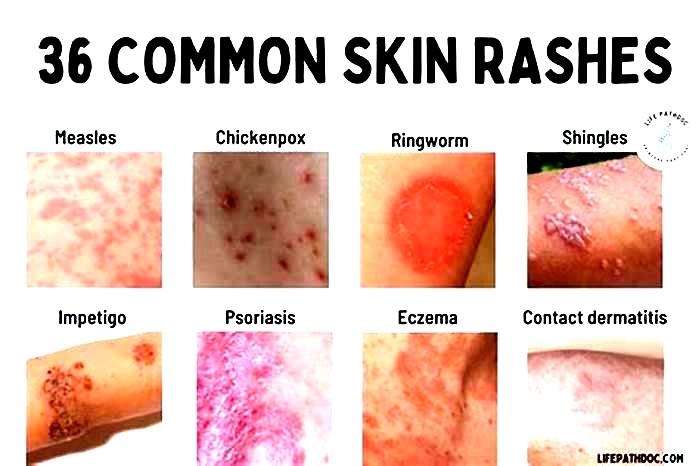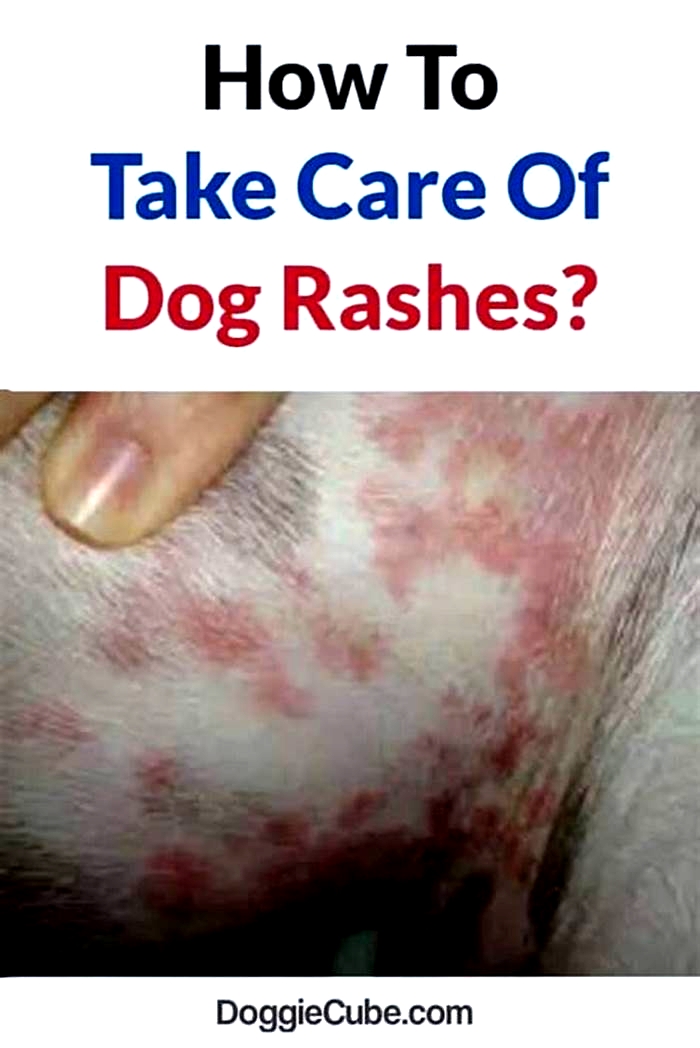Can a dog rash be contagious
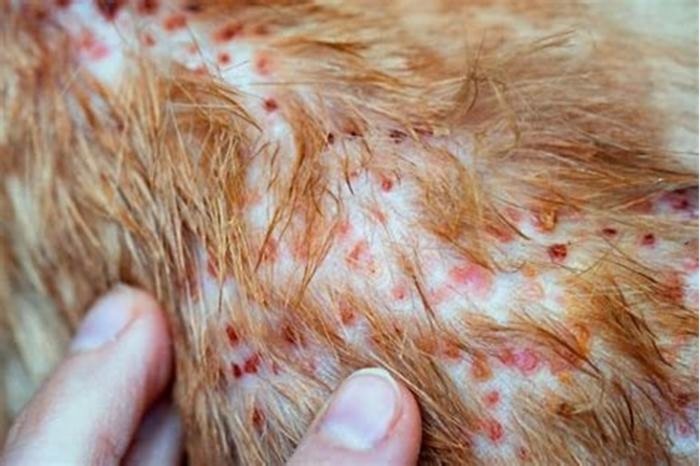
5 Skin Conditions Dogs Can Pass On To Humans
If you are like most dog parents, then you frequently give your dog hugs and snuggle up to them.
You might even allow your dog to sleep in the same bed as you.
Did you know there are some pretty serious skin problems that you can get from your dog?

Here are 5 dog skin conditions (plus one painful disease) that dogs can pass onto humans
How Dog Skin Conditions Transfer To Humans
Dogs typically get these skin conditions while playing outside, in dog parks, or while roaming the neighborhood.
However, believe it or not, your dog can actually pass on a skin condition to you without having the skin condition himself!
For example, one way that a dog can pass on a skin condition is by being petted. If someone pets your dog and they have a skin condition, if your dog rubs on you or you pet him, then you have a good chance of getting the skin condition yourself.
Who knew???
Like people, all animals carry germs But pets also carry certain bacteria, viruses, parasites, and fungi that can cause illness if transmitted to humans. Humans get these animal-borne diseases when theyre bitten or scratched or have contact with an animals waste, saliva, or dander. Source
5 Skin Conditions Dogs Can Pass Onto Humans
#1 Im sure youve heard of people getting Staph Infections, like MRSA, while in the hospital. Did you know that you can get a Staph Infection from your dog? Some Staph Infections cannot be treated with common antibiotics. Dogs pick up the bacteria for a Staph Infection from a person. Then, if your dog bites another person (or, if his saliva simply enters through a cut on the persons hand or some other open wound), the Staph Infection gets passed on to that person as well.
#2 Another skin condition that you can get from your dog is Scabies. Scabies is caused by a mite that is known to hang around kennels and pet shops. Scabies is a red bumpy rash with white flakes and the mites (known as Sarcoptic Mites and Mange) appear to be moving under the skin. Ive had experience with Scabies. When Iwas around 8, my entire family got infected with Scabies. It itches really bad. Our family doctor treated it with a prescribed lotion. A friend of mine also got Scabies from a dog that she rescued.
Here are 3 other dog skin conditions that can be passed on to humans:
#3 Ringworm This is actually a fungus, not an actual worm. (Its highly contagious to humans and other pets.)
#4 Hookworm This can cause abdominal pain, anemia, and diarrhea. (Heres more about how hookworms can infect humans.)
#5 Rocky Mountain Spotted Fever Your dog gets this from a tick bite. (My same friends dog also got Rocky Mountain Spotted Fever, in addition to the Scabies.)
What About Lyme Disease?
While not a skin problem, another serious medical condition that you can get from your dog is Lyme Disease.
Ifa tick that has infected your dog getsonto your own body, then you would be exposed to Lyme Disease as well. Lyme Disease can be painful and debilitating for both humans and dogs.
Heres how to tell if your dog has Lyme Disease from a tick bite.
photo by Mike Baird
I have 2 Miniature Pinschers. My husband and I consider them our 4-legged kids.
Is Shingles Contagious? Plus, How It Spreads
Shingles is not contagious, but someone can transmit the virus when the shingles rash is in the blister phase.
Shingles also known as herpes zoster is caused by the varicella-zoster virus, the same virus that causes chickenpox.
Shingles itself is not contagious, but the virus is. If you have shingles, you can pass the virus to another person, which could then cause them to develop chickenpox.
The varicella-zoster virus stays in that persons nerve tissue indefinitely. It may be inactive for most of a persons life but can reactivate and cause shingles.
Read on to learn more about shingles and how to prevent the transmission of the varicella-zoster virus.
The varicella-zoster virus
You cannot contract the virus through contact with the saliva or nasal secretions of someone who has shingles, except in rare cases. That means you usually cant acquire the virus if someone who has it coughs or sneezes on you.
Most people have the varicella-zoster virus in their bodies, but it only reactivates in
The chance of this happening increases as a person gets older. Around half of all cases occur after the age of 60 years, and the risk increases significantly from age 70 onward.
You might also have a higher risk if you:
- have a health condition that affects the immune system
- are taking medications that affect the immune system
- have too much sun exposure
Even a common cold can affect the immune system and trigger shingles in some people.
The most noticeable symptoms are blisters and pain.
Blisters
The outward symptoms of shingles
But unlike the chickenpox rash, which can occur on different parts of your body, shingles usually affect one area of your body. Shingles blisters are most prevalent on your torso, which wraps around your waist on one side of your body. In fact, the word shingles comes from the Latin word for belt.
The shingles rash may also appear on one side of your face. If this happens, contact a doctor immediately.
Learn more about what shingles looks like on the skin.
Pain
Shingles travels along a nerve path,
Shingles pain varies in severity. It can be challenging to treat with over-the-counter pain relievers.
Some people experience nerve pain after the visible symptoms of shingles clear. This is known as postherpetic neuralgia.
Other symptoms
The virus can cause symptoms unrelated to rashes, including:
- headache
- fever and chills
- generally feeling unwell
- upset stomach
- tingling, burning, numbness, and pain in the skin
Learn more about shingles without a rash here.
Shingles is not contagious. But if someone comes into contact with the rash at a certain stage, they may contract the varicella-zoster virus and develop chickenpox. If they have chickenpox, shingles can develop later in life.
To prevent transmitting the virus, keep shingles rashes covered. Cover the rash from when the blisters appear to when they crust and scab over.
This usually takes
The varicella-zoster virus is typically less likely to be transmitted with shingles than with chickenpox. However, the varicella-zoster virus can be passed on from when your symptoms start until your rash and blisters have crusted dry.
If you have shingles and are otherwise healthy, you can still go out in public or to work. But be sure to follow these tips:
- Keep the shingles rash clean and covered: This can help prevent other people from coming into contact with your blisters.
- Wash your hands often: Also, try not to touch the blisters.
- Avoid being around pregnant people: The varicella-zoster virus can cause serious health risks for both pregnant people and their babies.
- Avoid other at-risk people: Do not go into proximity to premature babies, infants with low birth weights, and children who havent yet had chickenpox or its vaccine. Also, avoid proximity with people who have weakened immune systems.
Doctors recommend the chickenpox vaccine for children. Preventing chickenpox will also prevent shingles.
For adults, a different vaccine called Shingrix is available to help prevent shingles. Health experts recommend the vaccine for all healthy adults
A double dose offers over
You can get the vaccine even if you:
- have previously had shingles
- do not know if youve had chickenpox
- have already had the Zostavax vaccine, an older shingles vaccine in use before 2020
The vaccine is not suitable if you are currently experiencing shingles.
A shingles outbreak usually lasts
Shingles outbreaks are temporary, but they can affect your health and well-being.
Shingles nerve pain can linger, lasting for weeks or even months in some cases. Generally, shingles pain is more persistent and longer lasting in older adults. Younger people usually show no signs of the disease once the blisters have cleared up.
Is it OK to be around someone with shingles?
You cannot get shingles from someone who has shingles like you can with the flu. But if youve never had chickenpox or havent been vaccinated against the varicella-zoster virus, you can contract the virus if you come into contact with the liquid inside a shingles blister.
You can develop chickenpox if you contract this virus.
Once you have the varicella-zoster virus in your body, its possible for the virus to reactivate and for you to develop shingles at some point in your life if youre not vaccinated against shingles.
Since its very rare to contract the virus through contact with the saliva or nasal secretions of someone who has shingles, if someone with shingles coughs or sneezes on you, youre not likely to get the varicella-zoster virus. However, it can be spread by the liquid inside shingles blisters.
Can I sleep in the same bed as someone with shingles?
Maybe. If you have never had the varicella-zoster virus, you are at risk of contracting it if you come into contact with someones shingles blisters or bedding that has liquid from the blisters on it.
Also, a person with shingles may be in pain or may have pain when touched.
How long does shingles last?
A shingles outbreak usually lasts
How long should you stay home with shingles?
If you keep your blisters covered, you may not need to stay home at all. But shingles can be very painful, so you may not feel like going to work while you have blisters.
Can I be around my grandchildren if I have shingles?
You cant spread shingles to your grandchildren, but if they have not had chickenpox or been vaccinated, they can contract the varicella-zoster virus and develop chickenpox.
Keeping your blisters covered while around your grandchildren (and anyone else) and washing your hands frequently should prevent spread.
Can shingles spread from kissing?
Its unlikely you will contract the varicella-zoster virus from kissing since its rarely spread from contact with saliva or mucous membranes.
However, if someone has a shingles rash with weeping blisters on their face or lips, you could contract the virus from kissing.
Can I touch my baby if I have shingles?
Since no baby has been vaccinated for the varicella-zoster virus, they can contract it and may develop chickenpox.
As long as all blisters are well covered and your hands are clean, you should be able to touch your baby. You
You also need to be very vigilant about handwashing until all your blisters are fully crusted over.
Shingles is a rash that can affect people who have had chickenpox, even if they had it years ago. The varicella-zoster virus causes it. The virus remains dormant in the body, but in some cases, it can reactivate and cause shingles.
The shingles rash is not contagious. But the virus can be passed on to another person through contact with the rash when blisters are present. Then that person may develop chickenpox.
There is less chance of passing on the virus if the rash is covered, and transmission can only happen from the time blisters form to when they scab over.
Having the shingles vaccine can help protect you from shingles.

